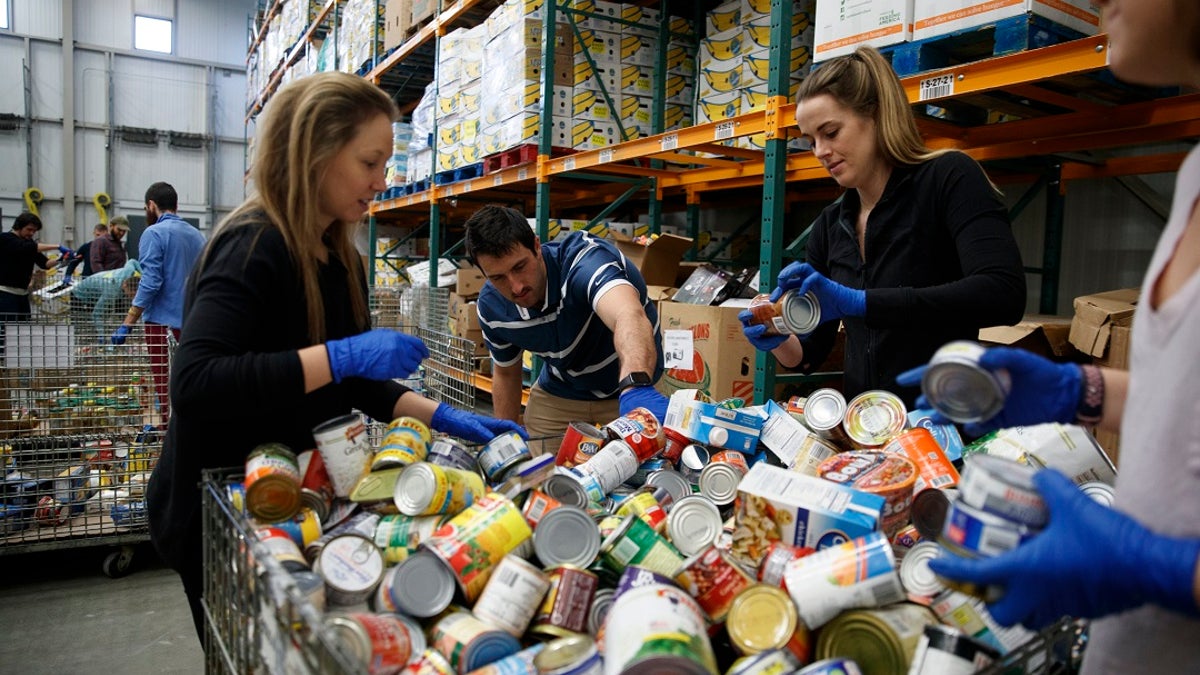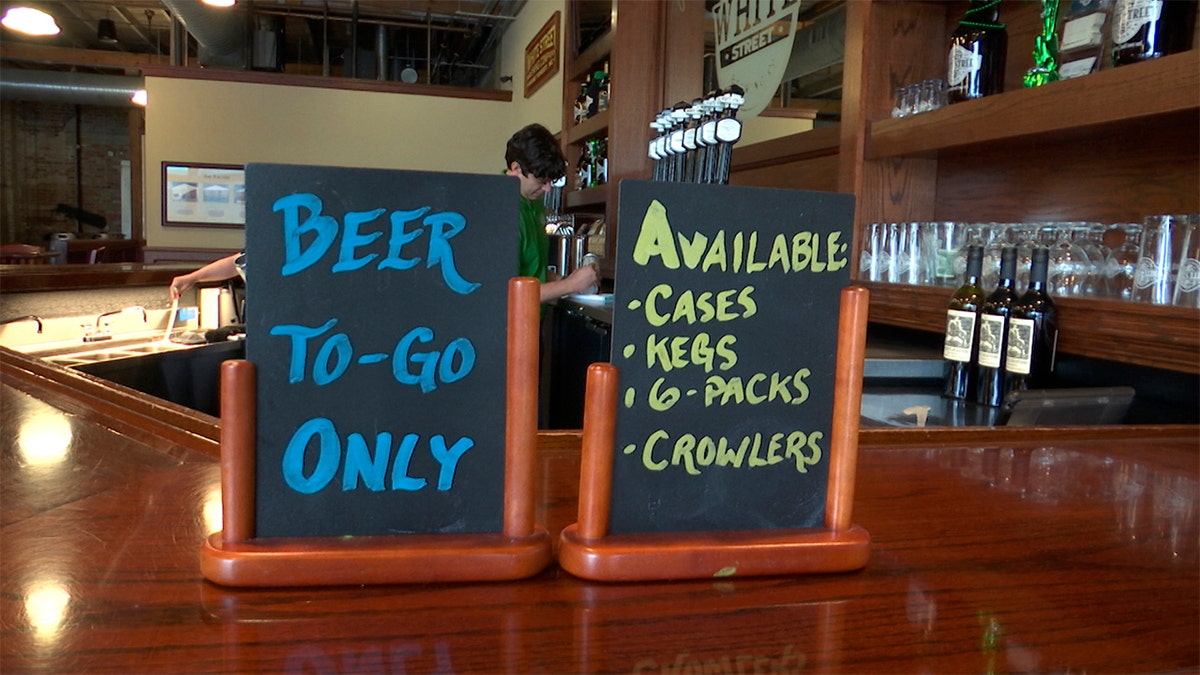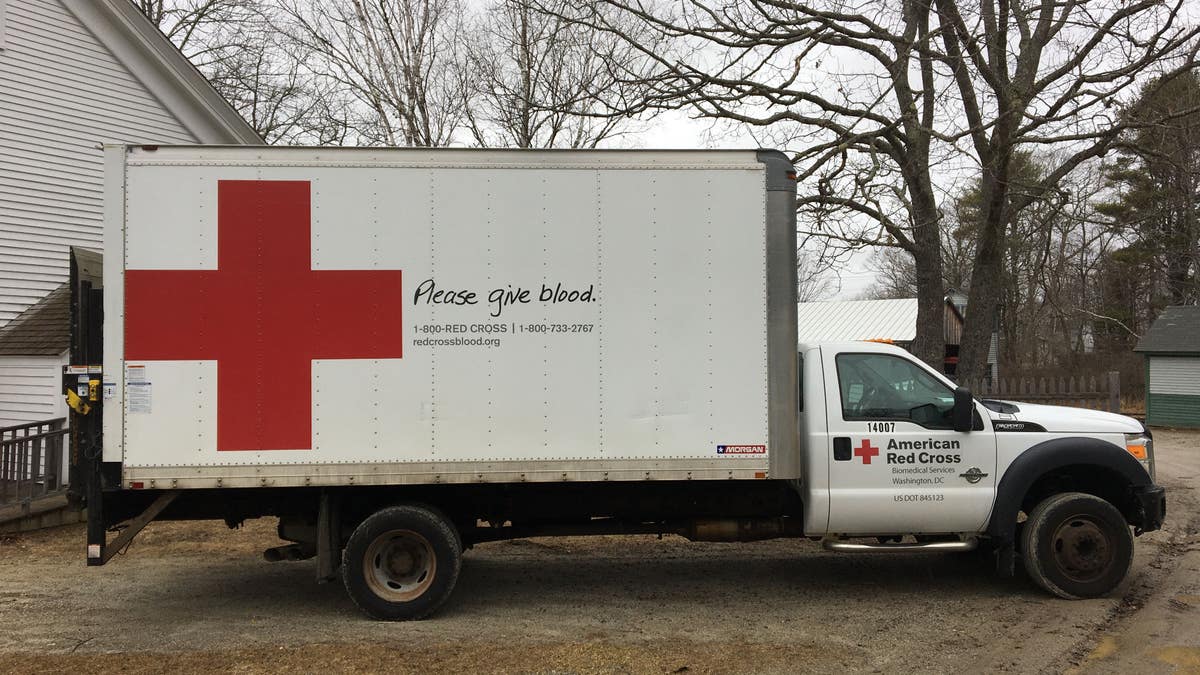Fox News Flash top headlines for March 21
Fox News Flash top headlines are here. Check out what's clicking on Foxnews.com.
Get all the latest news on coronavirus and more delivered daily to your inbox. Sign up here.
As citizens everywhere are urged to stay indoors amid the coronavirus outbreak, many are left stressed and anxious, wondering what to do and how they can help support their neighbors while still practicing social distancing.
The pandemic has spread far and wide across the globe, and as of Friday morning, the number of those around the world infected by COVID-19 surpassed 275,000. As many citizens' first instincts were to run to the stores and stock up on as many toilet paper rolls and gallons of water in reach, others have been left scrambling for necessities as stay-in-place orders are steadily becoming mandated by the government.
The Centers for Disease Control and Prevention (CDC) has said older adults and people with serious underlying medical conditions are at a higher risk for complications from COVID-19. While families are instructed to nurture themselves and their loved ones first, there is also a desire to check in to see how our neighbors are feeling and what they're in need of.
Here are a number of ways you can support your neighbors while still protecting yourself.
CORONAVIRUS: WHAT TO KNOW ABOUT THE MYSTERIOUS ILLNES

George Washington University School of Medicine students, Katie Coerdt, Paige Dekker, and Caitlin Merely sort canned food as they wear disposable gloves at Capital Area Food Bank in Washington on Thursday. The students are volunteering at the food bank because their medical rounds were cancelled because of the coronavirus outbreak. (AP)
Offer assistance with prescriptions, groceries
The elderly and those with underlying medical conditions, such as heart disease, diabetes and lung disease, are "high-risk" for complications of the coronavirus.
Some of your most vulnerable neighbors may be unable to make it to the grocery store or pharmacy to pick up food, water or prescriptions. If you're in a lower-risk group, call your neighbor to see if there's anything they need. A key to protecting yourself is to not enter another home and instead drop off items outside of their doorstep in addition to washing your hands in between actions and wiping down public surfaces.
ARE YOU WASHING YOUR HANDS CORRECTLY?
Keeping your home and surfaces clean using the correct disinfectants is crucial in preventing its spread.
Donate to a food bank
Several nationwide organizations are seeking donations to local food banks. Meals on Wheels is seeking volunteers to assist in delivering meals to the elderly.
Feeding America is looking for donations to fund its network of food banks as a majority of its soup kitchens and food pantries are staffed by volunteers.
Other organizations, such as Global Giving and No Kid Hungry, help provide meals to families and children as the pandemic has shut down schools throughout the country.
While at home in front of your computers, it is also important to check local listings online for ways you can help out your community even without leaving the house.

An employee at White Street Brewing Company in Wake Forest, N.C., fills a "crowler" can of beer on Tuesday, March 17. With bars ordered close due to coronavirus, brewers are making sure their customers can enjoy some fresh suds. (AP Photo/Allen G. Breed)
Boost neighborhood morale by hosting virtual gatherings
Fortunately, for families with children, streaming giants such as Netflix, Hulu and Disney+ have kept restless relatives occupied with early releases and specials. But even for movie buffs, time will come when you want to stretch your legs or interact with people who you aren't habitually seeing day in and day out.
Communities across the world have discovered fun ways to engage with neighbors, with one resident in Italy going viral for serenading his quarantined neighbors with music. Residents are encouraged to offer waves from their windows or balconies to keep neighbors smiling.
Adults have also taken to their cell phones to utilize apps that allow them to connect virtually through video chats. Some have hosted virtual happy hours or dinner parties with friends using WhatsApp, FaceTime and others. A conversation with a friend from afar can make a huge difference in easing anxiety and preventing loneliness.
Support local businesses
The food and beverage industry has taken a large hit from the coronavirus pandemic, as many were forced to close their doors to diners and utilize pick-up or delivery services only.
One way to support business owners in your community is by purchasing online gift cards to help temporarily close the gap. As grocery stores across the nation are placing limits on the number of items sold per customer, ordering from nearby restaurants can serve as a way to help out the business and make you feel like less of a homebody.
Stay informed
Some of the best things we can do for ourselves at this uncertain time is to keep abreast of the happenings in our communities, the places at risk around you and what the public is and is not supposed to do as news changes by the minute.
The coronavirus pandemic has left some communities under stay-at-home orders where estimated infection rates remain high.
Keeping informed with news and sharing it with others via telephone, the Internet, etc. will help assist in doing your part to stay in line with the expectations and outcomes of the pandemic.
SOME HUMAN CORONAVIRUSES CAN LIVE ON SURFACES FOR 9 DAYS, STUDY FINDS

On Tuesday, the American Red Cross president and CEO Gail J. McGovern announced it is facing a 'severe blood shortage.' (David Stires)
Donate blood
On Tuesday, the American Red Cross president and CEO Gail J. McGovern announced it is facing a "severe blood shortage" as a result of an "unprecedented number of blood drive cancellations during this coronavirus outbreak."
The organization said that donors are needed urgently, and they are urging healthy and eligible donors to make an appointment by visiting RedCrossBlood.org, or calling 1-800-RED-CROSS.
CLICK HERE TO GET THE FOX NEWS APP
While this method does not get you face-to-face with your neighbors, it will surely impact the ability to save lives and assist medical professionals desperately trying to save patients against the virus.
Fox News' Louis Casiano and Rebecca Kesten contributed to this report, as well as The Associated Press.










































